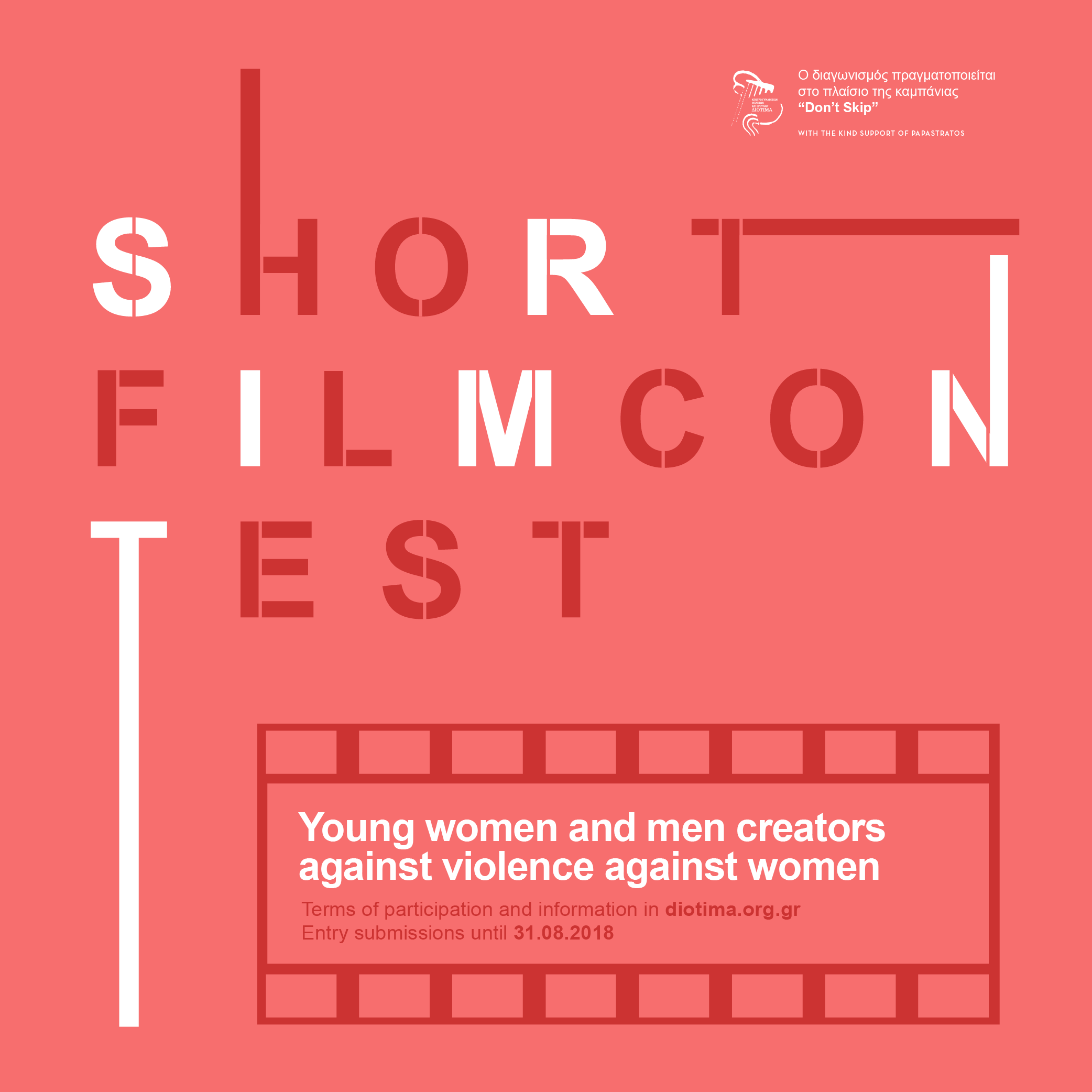
Diotima
 Centre for Research on Women’s Issues
Centre for Research on Women’s Issues Campaign Don't Skip
Campaign Don't Skip Centre for Research on Women’s Issues
Centre for Research on Women’s Issues Campaign Don't Skip
Campaign Don't Skip
 SCROLL
SCROLL


Gender based violence is an everyday, global phenomenon that affects the majority of women and girls, but also people LGBTQI+ people. It involves the use of established or assumed power-rank and is used as a means of exercising social control, punishment and "correction" of women and those who defy the norms of the social sex. It is distinguished from other forms of violence, as it stems from the historically established inequality between men and women, inequality that leads to a series of discrimination against the latter.
GBV has many forms: verbal, physical, psychological / emotional abuse, economic violence, sexual harassment, rape, human trafficking, stalking, etc. Gender based violence occurs both in acts and threats causes physical, psychological and sexual trauma on its victims. At its extreme it can lead to femicide. It takes place in both the private and the public sphere (home, work, mass transportation etc.) in a family, friendly or working environment. Gender based violence in all its forms is a criminal offense and is severely punished by Greek law.
The majority of Greek society considers that gender based violence is a phenomenon that belongs to the past, to other countries, to different cultures. Aiming to transform these perceptions and offer more visibility to the extent of the phenomenon in Europe, we chose to present the statistics from the research carried out by the EU Fundamental Rights Agency (FRA, 2014). This is the world's largest survey of violence against women, with 42,000 participants aged 18 to 74.


The social environment often skips gender based violence incidents. Very often, victims rather than perpetrators are considered to be responsible and accused for being violated. In many surveys, survivors of gender based violence reported that have been discouraged, faced with cautiousness and received a lack of understanding, when they sought help from the family, work environment, or even government agencies (eg police, judicial authorities).
Friends, neighbors, relatives, although they often see, hear, know, suspect that a woman can be a victim of domestic violence, refuse to get involved, considering it to be a "private affair".
In this way a collective culture of tolerance is established, causing the perpetrators to reproduce, unpunished, violent and abusive behaviors. Victims of GBV on the contrary, remain in abusive relationships, in fear of not only the retaliation of the perpetrator, but also stigmatization, social isolation and lack of safety both for themselves and their children.
Given the fact that most European states have neither complete nor comparative data to the extent and the nature of the phenomenon, it is clear that gender based violence remains an "invisible" phenomenon.
Diotima Center, through the "Don’t Skip" campaign, aimed towards offering visibility and contributing to the formation of a zero tolerance collective culture. The contribution of all of us is necessary, in order to eradicate gender based violence.


Diotima Center has launched a short film competition, titled "Young women and men artists, against women’s violence”: Don’t Skip" (18/4 to 31/08/2018). Our pursuit was for artists (18 to 30 years old) to participate, to share their fresh cinematic look and to raise awareness among our fellow citizens. Eleven films took part in the contest. The jury composed of Eva Stefani (director), Evi Karabatsou (director), Despina Tsouma (communication consultant - representative of CRWI Diotima), awarded the prize (€ 1,000) to Dimitris Ballotta's and Claudia Cornea’s "Everything is Fine", while the audience award (1000 Euros), was granted to the short film "Our Bodies", created by Polyxeni Fotopoulo.
